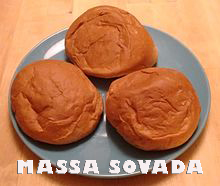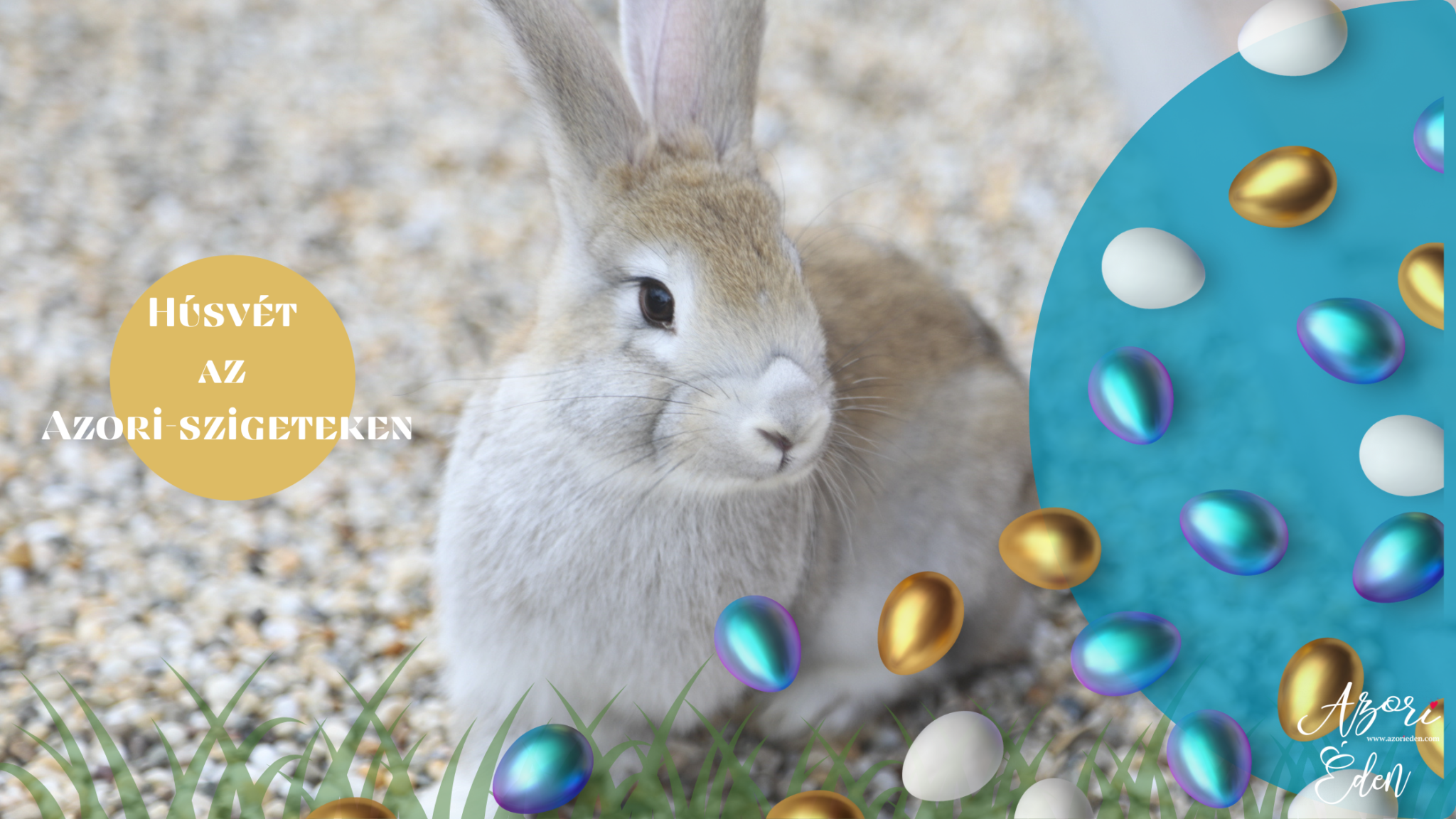Easter on the Azores – through our own eyes, the cakes we tried, the processions we attended
Easter (in Portuguese: Pascoa) is one of the most important religious feast and holiday of the year both in Hungary and in Portugal, celebrating the resurrection of Jesus from the dead. In Hungary, there are special church services and masses held all over the country, and the festivities usually end with strolling processions. The celebrations on the Azores are similar, the main exception being that on the Azores the procession is not limited to one single day – Easter Sunday – but is held on a different weekends in several cities.
According to Hungarian tradition, after the 40-day-long lent period people are heading to the church with baskets full of cooked ham, eggs, milk-loaf, and horseradish so that they can enjoyed a blessed meal in their homes after the service, surrounded by their loved ones. We have seen people with baskets full of food on the Azores, too, with the younger crowds holding baskets full of chocolate eggs.
And now a little extra information to my non-Hungarian readers: in Hungary (Wet) Easter Monday is the day when boys douse girls with water. It has at its core the pagan spring rite of pouring water as means of cleansing, purification, fertility, and making things right with the god of nature. In the countryside (for example Hollókő) girls are doused with buckets of water drawn from the well, in the cities the usage of cheap perfume is the preferred method. The girls return the favor by gifting the young men hand decorated Easter eggs. Some people argue the dousing ritual originates from the Bible, where the soldiers used water to quiet down the women who brought the news of the Jesus’ resurrection. Since I have not been visiting Azorean families during the holiday season, I am not sure about the local Easter Monday tradition. If you, dear Reader, know more about Portuguese traditions, please let me know so I can improve this post with more information.
What are the main differences between Easter celebration on the Azores versus that in Hungary?
There are quite a few apparent differences between Easter celebration on the Azores and that in Hungary. Whilst in Hungary Easter means a 4‑day-weekend with Friday and Monday being public holidays (meaning all shops and some restaurants are closed), on the Azores only a few shops were closed on Friday and on Sunday. So most shops were open but the queues were massive, and due to the relatively long wait times to be served the grocery shopping took especially long. The biggest difference is, however, that on the Azores Easter Monday is not a public holiday – even though Portugal is a very Catholic country.
What kinds of cakes are the Portuguese preparing for Easter? What are the typical Hungarian sweets at this time of the year? Attention, the below list of goodies are not recommended for those on gluten-free, and lactose-free diets
The stores were well prepared for the Easter holiday. I have seen giant packs of hard candy covered in pink and white wrapping.
Easter cakes



Massa Sovada or Pão Doce – this simple loaf, the Massa Sovada – made of water, salt, eggs, and flour – can be purchased in several different sizes during Easter.
Folar da Pascoa – the Folar is a Massa Sovada with 1, 2, or 3 hard-bolied eggs baked into it as decoration. We have even took a photo for you. In Portugal, the Folar comes both in sweet and in savoury versions – and there are regions where the version without the hard-boiled eggs (Massa Sovada) is also called Folar. We have tried a sweet Folar, the traditional choice of Sao Miguel. The hard-boiled eggs in the cake are representing renewal, rebirth, resurrection. For all non-gluten free visitors I can highly recommend trying the Folar. We have bought ours at the bakery of Gloria Moniz, in Furnas, where everything tastes simply amazing. I have introduced this bakery in a previous post already, also mentioning their (unfortunately only) gluten-free option. It is also customary for a godson to bring a viola bouquet of flowers to his godmother on Palm Sunday, the kind gesture then being reciprocated by the godmother baking a Folar for the godson on Easter Sunday.
Pão de Ló – this cake looks like a milk-loaf, but has a hole in the middle. This cake is made on all kinds of occasions, not just during Easter. I have noticed that during Easter they put a little jar in the hole, and fill the jar with the pink and white hard candy I mentioned earlier.
How were the processions like?
Yesterday – meaning Easter Sunday – the sun came out a little, so we went on a road trip. Since we were aware, that the procession in Furnas is on Sunday next week we figured we take a look in other cities. Driving towards Ponta Garca we found ourselves in the mids of a huge procession, the road we were driving on was covered with a flower carpet. By the time we reached the church on the coast, the procession with all the people and the band managed to catch up. I find it fascinating how the good people of the Azores take pride in the preparations for every holiday. They put down these beautiful flower carpets, and everyone – those attending the procession, but also those who are only attending service – is in their Sunday best or in their uniform. We have managed to take a few photos from our car whilst driving to Ponta Garca, the flower carpet, and the procession – take a look.






Due to the unpredictable weather Easter might not be the best time to visit the Azores, but of course this time of the year is full with celebration, festivals, and processions. We have made some Easter decoration at home – how do you like it?



Feliz Pascoa! Happy Easter!
Sources:
http://portuguesediner.com/tiamaria/pao-de-lo-portuguese-sponge-cake/
http://www.edenkert.hu/elet-mod/legjobb-otthon/husveti-szokasok-hagyomanyok/5469/
https://en.wikipedia.org/wiki/Folar
